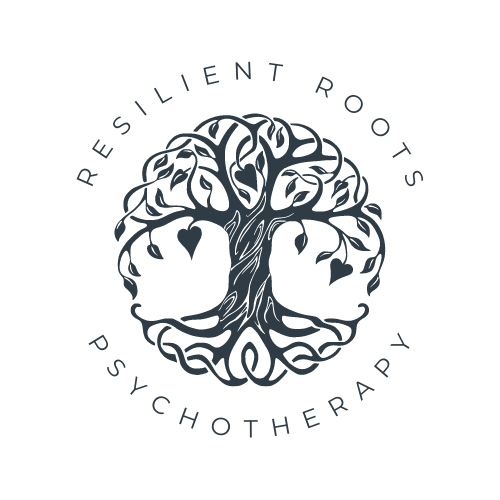Overcoming Burnout: Tips and Strategies for Managing Stress and Finding Balance
In today's fast-paced world, burnout has become an all-too-common problem for many of us. Whether you're juggling a demanding job, a hectic schedule, or the pressures of everyday life, burnout can leave you feeling exhausted, overwhelmed, and emotionally drained. But what exactly is burnout and how can you overcome it? In this blog post, we'll explore the causes of burnout, how it feels, and practical strategies to help you manage stress, build resilience, and prioritize your well-being. Whether you're experiencing burnout yourself or simply want to learn more about this problem so many of us experience, this post will provide valuable insights and actionable tips to help you overcome burnout and live a more fulfilling, balanced life.
What is burnout and how does it feel?
Burnout is a term used to describe a state of emotional, physical, and mental exhaustion caused by prolonged stress and pressure. It can affect anyone, regardless of age, profession, or lifestyle, and it can manifest in a variety of ways, including feelings of exhaustion, cynicism, and a reduced sense of accomplishment. Burnout can make it difficult to function and cope with everyday life and can have a significant impact on our mental and physical well-being.
Burnout can manifest in other ways too, including:
Physical symptoms: Burnout can cause a variety of physical symptoms, such as headaches, gastrointestinal problems, fatigue, and muscle tension. These symptoms can make it challenging to function and perform daily tasks. Prolonged stress and burnout can weaken our immune system, making us more susceptible to illness and infection. This can further exacerbate the cycle of burnout and make it even more challenging to recover.
Emotional distress: We may begin to notice changes in our mood (e.g., feeling anxious, irritable, or depressed.) This can affect our ability to engage in self-care. Burnout can also cause us to become more negative and critical toward ourselves and others, which can create tension and conflict in relationships.
Emotional detachment: Burnout can cause a sense of emotional detachment and disengagement from our work, relationships, and hobbies. This can lead to feelings of apathy and detachment from life, making it challenging to find joy and meaning in our daily activities.
Reduced productivity: Burnout can lead to a decrease in productivity and efficiency, as we struggle to focus and complete tasks. This can further contribute to feelings of stress, frustration, and helplessness.
Burnout can make you feel like you're going through the motions, without any sense of purpose or joy and can also take a toll on your sense of self-worth and confidence. You may feel like you're not doing enough or that you're constantly falling short, even though you're working as hard as you can.
Overcoming Burnout
If you're experiencing burnout, know that you're not alone, and there are steps you can take to address it. Here are some tips for overcoming burnout:
Take a Break: Sometimes, the best thing you can do when you're feeling burnt out is to take a break. Take a day off from work, plan a long weekend, or go for a quick walk when you’re feeling overwhelmed. Taking time for yourself can help you recharge and refocus.
Practice Self-Care: Engage in activities that help you feel relaxed and rejuvenated, such as painting, journaling, or reading a book. Practicing self-care can help you reduce stress and anxiety and improve your overall well-being.
Set Boundaries: Learn to say no to commitments that don't align with your priorities or values. Be intentional about separating your work life from your home life (e.g., not responding to emails after hours or on the weekends, leaving work on time and not staying late, or saying no to additional responsibilities or task requests). Setting boundaries can help you avoid overextending yourself and feeling overwhelmed.
Prioritize Rest and Sleep: Getting enough rest is critical to managing burnout. Establish a consistent sleep routine and aim to get 7-8 hours of sleep per night. In line with self-care, book a massage, go to a yoga class, or engage in meditation as healthy ways to rest.
Make healthy lifestyle changes: Making positive lifestyle changes can help you prevent and manage burnout. This may include eating a healthy diet, exercising regularly - even if it’s a walk around the block once or twice a day, and reducing substance intake (caffeine, tobacco, marijuana, alcohol).
Seek Support: Engaging in meaningful conversations with a therapist offers a valuable opportunity to process and navigate the complex emotions associated with burnout. A therapist can help you unravel the root causes of your stress and anxiety while equipping you with effective coping strategies. Support from your loved ones also plays a significant role in your journey toward burnout recovery. Opening up about your struggles to family and friends can provide support, empathy, and validation.
Burnout is a common problem that affects many people, but it's not something you have to live with forever. By taking care of yourself, setting boundaries, and seeking support, you can overcome burnout and regain your energy, motivation, and passion for life. Remember, it's okay to prioritize your well-being. Your health and happiness are essential, and taking care of yourself is the first step toward a more fulfilling and balanced life. So, take a gentle, deep breath and grant yourself a well-deserved respite.

